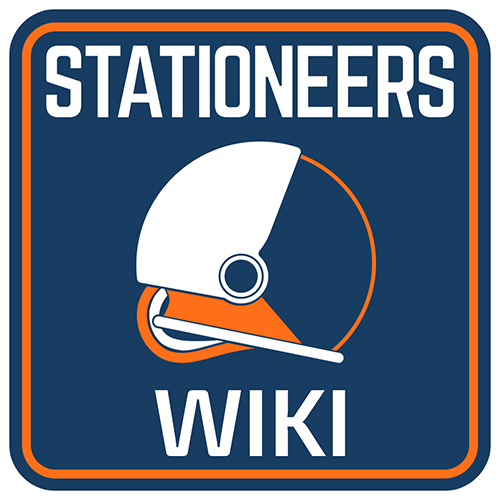Difference between revisions of "Pumped Gas Engine"
From Unofficial Stationeers Wiki
(Created page with "{{Itembox | name = Kit (Pumped Gas Rocket Engine) | image = | createdwith = Rocket Manufactory | cost = 15g Iron, 10g Copper...") |
m (Added specific impulse with nitrous mix.) |
||
| (One intermediate revision by the same user not shown) | |||
| Line 21: | Line 21: | ||
}} | }} | ||
== Description == <!--T:2--> | == Description == <!--T:2--> | ||
| − | The pumped gas rocket engine uses a 2:1 mix of [[Volatiles]] to [[Oxygen]]. It has a maximum thrust of 16.2kN and contributes 500kg to the overall weight of the rocket. | + | The pumped gas rocket engine uses a 2:1 mix of [[Volatiles]] to [[Oxygen]]. It has a maximum thrust of 16.2kN and contributes 500kg to the overall weight of the rocket. Despite its Stationpedia entry, this engine has a measured specific impulse of 2,860s with a perfect volatiles and oxygen fuel mix and 2,080s with a 1:1 volatiles and N₂O mix. |
To travel to mars orbit it is recommended the rocket weigh less than 8000kg. | To travel to mars orbit it is recommended the rocket weigh less than 8000kg. | ||
Latest revision as of 23:26, 10 September 2024
| Recipe | |
|---|---|
| Created With | Rocket Manufactory |
| Cost | 15g Iron, 10g Copper, 5g Gold |
| Operation | |
|---|---|
| Construction | |
| Placed with | Kit (Pumped Gas Rocket Engine) |
| Placed on | Engine Mount |
| Stage 1 | |
| Deconstruction | |
| Item received | Kit (Pumped Gas Rocket Engine) |
| Stage 2 | |
| Next Stage Construction | |
| Constructed with item | 5 x Kit (Pipe) |
| Deconstruction | |
| Item received | 5 x Kit (Pipe) |
| Stage 3 | |
| Next Stage Construction | |
| Constructed with tool | Welding Torch |
| Constructed with item | 4 x Steel Sheets |
| Deconstruction | |
| Item received | 4 x Steel Sheets |
Description[edit]
The pumped gas rocket engine uses a 2:1 mix of Volatiles to Oxygen. It has a maximum thrust of 16.2kN and contributes 500kg to the overall weight of the rocket. Despite its Stationpedia entry, this engine has a measured specific impulse of 2,860s with a perfect volatiles and oxygen fuel mix and 2,080s with a 1:1 volatiles and N₂O mix. To travel to mars orbit it is recommended the rocket weigh less than 8000kg.
Comparison[edit]
Rocket Engines give you their max output in kN with this you can calculate what they can reasonably carry into orbit depending on the planet or moon you are on. Force = Mass * Acceleration. Acceleration is equal to the planet's gravity, Mass is given in kg per part of the rocket, and Force is kN. If your thrust force listed below is less than the weight of the rocket in kN then you will not even take off. It is better to have a thrust much higher than the weight of the rocket or else you risk running out of fuel on launch and on landing.
Liquid propellants bring greater efficiencies. Using Nitrous Oxide as oxidizer provides excessive thrust values. Keep in mind that N2O fuel mix is 1.9375 times heavier at same moles, or 2.15 times heavier at same volume, while thrust boost is around 1.5-1.7. Engine efficiency determines "bonus" thrust multiplier, meaning engine with higher efficiency will give more thrust consuming same amount of fuel. Thus using liquid engines is more favorable if one can cool fuel down, moreover Pressure Fed Engines consume fuel inversely proportional to its temperature. On the other hand if Volatiles and Oxygen are in excess (e.g. farm on Vulcan) is may be much easier to opt for Pressure Fed Gas Engine. It will provide ~40kN at 20°C.
| Name | Base Power Usage | Rocket Mass Contribution | Max Thrust | Real Max Thrust | Efficiency | Exhaust Velocity | |
|---|---|---|---|---|---|---|---|
| Using O2 | Using N2O | ||||||
| Pressure Fed Gas Engine | 10W | 500kg | 40.3kN | 59.9kN | 41.9kN[1] | 96% | 3.86km/s (Isp: 394s) |
| Pumped Gas Engine | 200W | 500kg | 16.2kN | 16.3kN | 24.4kN | 100% | 4.02km/s (Isp: 411s) |
| Pumped Liquid Engine | 200W | 500kg | 17.9kN | 18.7kN | 31.3kN | 140% | 5.56km/s (Isp: 568s) |
| Pressure Fed Liquid Engine | 20W | 500kg | 29.3kN | 38kN | 58.7kN | 160% | 6.31km/s (Isp: 644s) |
| Update 0.2.6091.26702 - 01/17/2026 Rocket_Engines | |||||||
- ↑ N2O must be much hotter to avoid condensing therefore decreasing pumping rate
